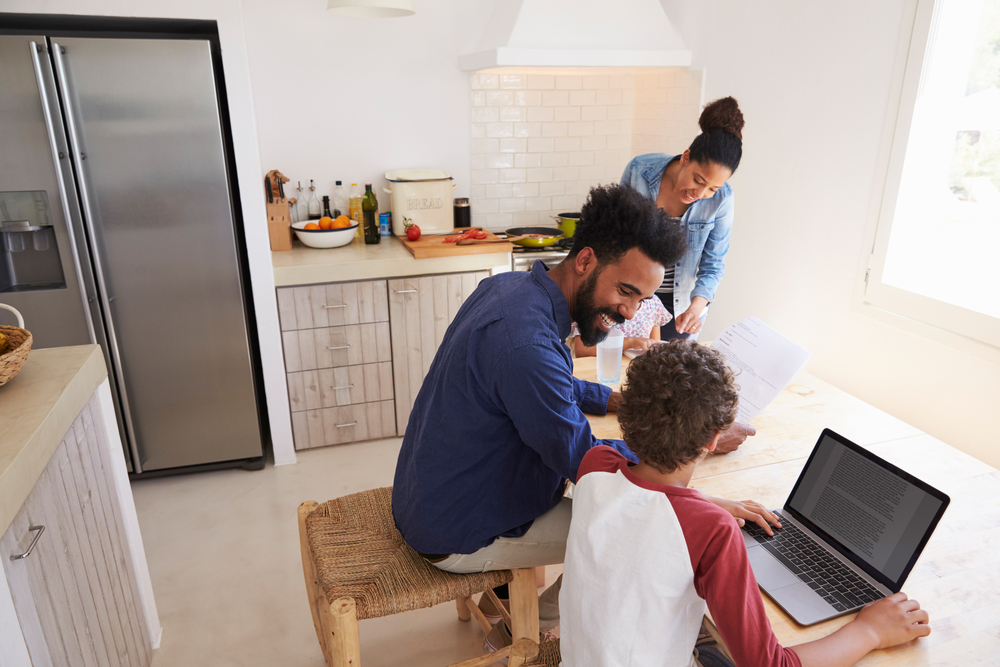The coronavirus pandemic is stressful for everyone, but it can feel especially overwhelming for parents. With schools closing down and companies switching to remote work, many of us are experiencing a “new normal” where our kids are home 24/7. The resulting challenges of getting work done with children by our sides — and of finding valuable ways to entertain and stimulate them — can be anxiety-inducing.
That’s why it’s worth knowing that all this time at home with your kids actually has powerful, science-backed benefits. Research has found that spending quality time with family helps improve overall well-being, which can relieve stress during this crisis. And quality time with parents is especially beneficial to adolescents, making them less likely to engage in bad behavior, according to a study published in the Journal of Marriage and Family.
Nurturing familial relationships is always important, but it’s more crucial than ever right now. However 80 percent of people say the coronavirus outbreak has them nervous about maintaining strong connections to family, according to a Thrive Global survey of 5,000 respondents around coronavirus pain points.
One great strategy is to reframe this time as an opportunity to build stronger bonds with our loved ones — and then take small daily actions to do just that. Here are four science-backed Microsteps to help your family bond — and thrive — when you can’t leave the house.
Define a new morning routine.
If they’re not going to school or to daycare, the day can feel very long and unstructured for your children. Whether it’s a family breakfast, reading a book together, or choosing their clothes, each step can help them to feel like they’re more secure.
If you’re taking a brief movement break between meetings, invite your children to join you.
Turning on a favorite song to dance or jumping around together can boost your energy and your moods at the same time.
Create a new tradition.
If your usual family activities are off limits right now, try something new: a movie night at home instead of at the theater, or a walk around the block (if it’s safe to do so) instead of a visit to a crowded playground.
Every night, make a schedule for the next day.
Every family member can share what is going on in their day, and your children can add in activities like watering the plants, art projects, and reading, as well as their meals and snack breaks. This replicates the structure they’re used to at school and helps you plan ahead at the same time.
Follow us here and subscribe here for all the latest news on how you can keep Thriving.
Stay up to date or catch-up on all our podcasts with Arianna Huffington here.


